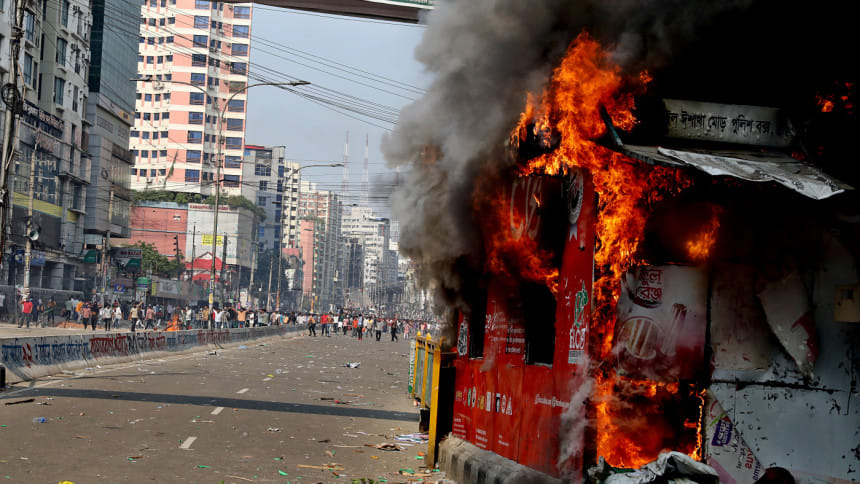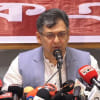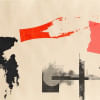Politics of Fire

"Ki hobey?" What's going to happen, is the question. While YouTubers, TikTokers, and Facebookers are all filing their predictions, let the truth be known: no one has any idea what's going to happen to Bangladeshi politics. It's like being asked about the weather. Forecasts may help with disaster preparedness, but they don't guarantee a sunny year. No one knows when it's going to rain. So, when asked if I have the faintest inkling of what's going to happen, I often respond in zest: "Get out there and stop the rain, if you can." Unfortunately, the rains washing our lands are stemming from a precipitation pregnant with intolerance, inflexibility, and inconsideration.
At our end, according to official sources, between October 31 and November 1, nine buses, two covered vans, two trucks, one pickup van, two showrooms, and one police box were torched. On November 1, there was four-way fighting going on in the capital's Mirpur area as a result of minimum wage hike protests. Between October 28 to November 4, at least 7,835 leaders and activists of BNP were arrested. During November 5-6, different places reported processions, blockage of roads, and arson incidents. There have also been reports of violence in Gazipur, Narayanganj, Manikganj, and Khulna. On October 28 alone, 1,500 opposition workers were injured along with around 40 policemen and 30 journalists, while at least two people died.
Watching Parvez, the policeman from Chorakatari village die while crying for his life wasn't easy; student leader Abdur Rashid Sarder of Natore being reportedly pushed from the roof and killed wasn't acceptable; watching hundreds of people engaging out in the streets and betting their lives on the sanity of the political leaders wasn't palatable either.
Yet, for many of us, these are just stats, almost proving that civil society is distanced from reality, with its members boxed within talk shows, newspaper columns, and a few petitions. Therefore, most of us are talking, bickering, and hollering on television, at the lunch table, in the living rooms, at meetings of forums, and in all kinds of groups of people all over the country—about democracy.
Almost a hundred years ago, the number of democracies increased and the spread of democratic governance began to seem inevitable. However, this reverie was short-lived as infant democracies only lived to wobble and fall. Hungary, Albania, Poland, Lithuania, and Yugoslavia were a few of them. Very soon, other bigger states began to turn to authoritarianism. Fascism toppled these governments, followed by the stock market crash in 1929, ushering in a new wave of the misery that ensued for a while. In 1932, Mussolini predicted, "The liberal state is destined to perish," and by 1933, Hitler was in power. More epitaphs of democracy had popped up in Greece, Romania, Estonia, Latvia, Portugal, Uruguay, and Spain. Japan invaded Shanghai, Mussolini invaded Ethiopia. In most nations in the West, democracy faltered, weakened by monopoly, apathy, and corruption.
For the sake of tomorrow, we need to ensure that our Journal of Democracy does not contain any inaccurate entries so that even Rip Van Winkle, after a hundred years of slumber, has no problems catching up with what Bangladesh is now going through.
By 2005, the world looked more like how it had in the 1930s. Putin, Erdogan, Duterte, Bolsonaro, and Trump marked yet another phase. The US democracy, which in 2006 was the 17th most democratic nation, became a "flawed" one in 2016. Following the pattern of authoritarianism backed by misinformation, terrorism, human rights abuses, political intolerance, toxic social media practices, and assaults on the press, many nations cut back on their levels of tolerance, leaving little to no space for criticism, protest, or dissent.
With intolerant governance structures in place—where one breathed and led wars—the only way to success was gradually considered to be through the annihilation of the other. So, if ever the "other" was attempted to be resurrected, the zombie of freedom also trembled in fear of not knowing any better than continuing the cycle of violence.
In our own land, there are talk shows mimicking battlegrounds, where guests get their time to speak and are often subjected to rounds of largely uninformed, bellicose discourse. At times, shows soared in popularity just because the guests managed to create enough controversy by coming very close to fistfights, or had exited studio sets. There have been columns reeking of dubious content that have gone unchallenged. There have been decent reports which have been refuted while indecent ones have headlined all over. Yet, even now, no one's actually practising democracy. Who's chronicling the strategic interventions of the politicians of ruthlessly sacrificing the regular man as a mere pawn on the board?
Someone is holding a gun; someone is hurling a bomb; someone is wielding a machete; someone is waving a flag; and there's others burning cars, buses, homes, and bodies. Someone is hiding under cover, some are being picked up, some are being held back; and some are being sent into oblivion. Today, we need to record how many times intolerance has marked our democratic plains; how many times threats have been showered against any opposition; how many times fear has taken over our lives; how many times the economy has taken a nosedive; how many times regular people have returned from the kitchen markets empty-handed; how many times unmarked vehicles have picked up rebels from our neighbourhoods; how many times families have had to borrow wings from the phoenix in their backyard to build their new homes from ashes.
At a time like this, all our diaries need to be accurate, objective, and real.
For the sake of tomorrow, we need to ensure that our Journal of Democracy does not contain any inaccurate entries so that even Rip Van Winkle, after a hundred years of slumber, has no problems catching up with what Bangladesh is now going through.
While I was finishing this column, a friend of mine candidly commented, "Once upon a time, politicians were public servants; somewhere in the middle they turned politics into a profession; and now, politics is the best business they could have ever had."
There's a hard truth in this. Whether we like it or don't, our politicians have dropped the ball on all fronts, causing us all infinite grief and irreconcilable loss.
Dr Rubana Huq is vice-chancellor of Asian University for Women.
Views expressed in this article are the author's own.
Follow The Daily Star Opinion on Facebook for the latest opinions, commentaries and analyses by experts and professionals. To contribute your article or letter to The Daily Star Opinion, see our guidelines for submission.

 For all latest news, follow The Daily Star's Google News channel.
For all latest news, follow The Daily Star's Google News channel. 










Comments